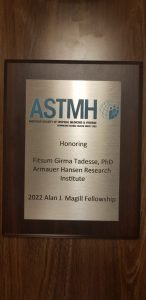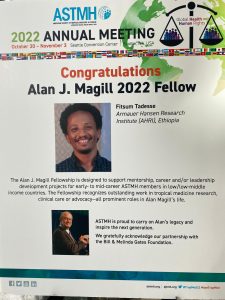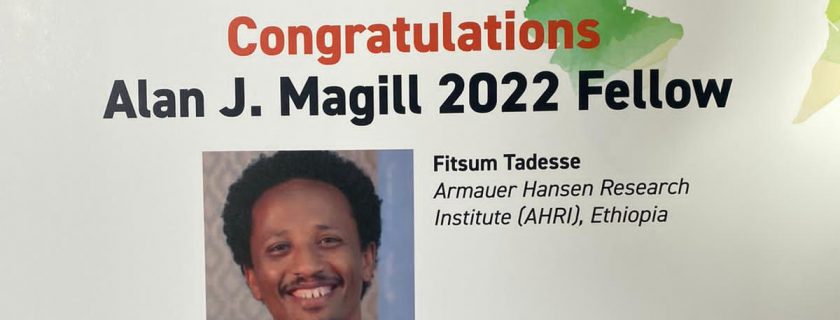We would like to congratulate one of our successful researchers, Fitsum Girma Tadesse (PhD) who has been named the 2022 Alan J. Magill Fellowship recipient by the American Society of Tropical Medicine and Hygiene (ASTMH) – an international scientific organization of experts dedicated to reducing the worldwide burden of tropical infectious diseases and improving global health.
Dr. Fitsum, during his presentation at the 2022 ASTMH Annual Meeting, in Seattle Washington, elaborated that there have been recent discoveries of expansion of an invasive mosquito vector known as the Anopheles stephensi in Ethiopia and the Horn of Africa. This mosquito vector, which is native to India and the Persian Gulf; is now linked to the recent malaria outbreaks in the country, Dire Dawa city, to which Dr. Fitsum’s team demonstrated this for the first time.
In Africa, where the majority of global deaths from malaria occur, the disease is mostly spread by a mosquito specific to rural areas. However, the Anopheles stephensi now posses an even greater threat particularly to city-dwellers as it breeds in water storage container that are typically common in rapidly expanding urban settings – and is resistant to most insecticides in common use.
Africa being vast, and owing to patchy surveillance where scientists don’t know how common the invasive mosquitoes are or how much malaria they’re causing, Dr. Fitsum intends to leverage the fellowship to develop leadership skills in the coming two years with an attachment at international institutions.


For insights on the Alan J. Magill Fellowship, Check on the link below
https://www.astmh.org/awards-fellowships-medals/alan-j-magill-fellowship
For excerpts of Dr. Fitsum’s interview with the BBC, check;
Other insights from scientific journals such as Nature, and Science; check on the links below.
https://www.nature.com/articles/d41586-022-03540-8
https://www.science.org/content/article/unusual-malaria-outbreak-tied-invasive-mosquito
